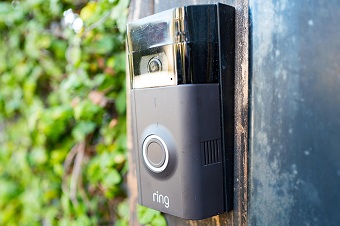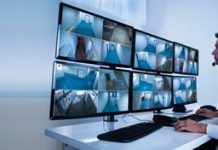The UK Information Commissioner’s Office (ICO) has published new guidance clarifying the law on domestic CCTV use in and around people’s homes. If you have CCTV cameras installed in or around your home, it is important you fully understand your obligations as misuse could result in a fine or civil lawsuit.
An example of this is the case of John Woodward, who, back in October 2021, was forced to pay his neighbour £100,000 after a judge ruled his Amazon-owned Ring smart doorbell, which included a built-in camera, broke data laws and breached privacy.
As a result of this case, and many other complaints around domestic CCTV, ICO hopes its guidance will help people understand when their use of CCTV is subject to data protection laws, specifically the General Data Protection Regulation (GDPR) and the Data Protection Act 2018.
ICO claims the main principle is quite simple: If you set up your system so it captures only images within the boundary of your private domestic property (including your garden), then data protection laws will not apply to you. However, they do apply if your system captures images of people outside the boundary of your private domestic property – for example, in neighbours’ homes and gardens, shared spaces, or on a public footpath or street.
The easiest way to deal with the data protection laws is to set up your system so it doesn’t view anything outside the boundaries of your property. If that’s not possible, then under the law you are considered a “data controller” and will have to take extra steps to comply with data protection laws.
Firstly, if you capture images outside the boundaries of your property, you must be able to explain why you need those images. The advice is to write down these reasons so, if the ICO asks, you will be able to offer an explanation as to why capturing the images is more important than protecting the privacy of your neighbour and other members of the public.
The ICO also says you will need to:
• Display signs to let people know what you are doing and why
• Limit how many images you capture to only what you need
• Hold the images securely to prevent them being misused or shared without permission
• Delete the images as soon as you don’t need them
• Respond to Subject Access Requests
• Delete images if people ask you to
• Consider any objections you receive to the use of CCTV
Failure to comply with the law could lead to enforcement action by the ICO and a fine. And, as noted in the story above, you could also be sued by individuals for significant sums of money. The guidance contains additional advice on recording and storing images, use of audio recording, sharing of images and consulting with your neighbours about the use of CCTV.








